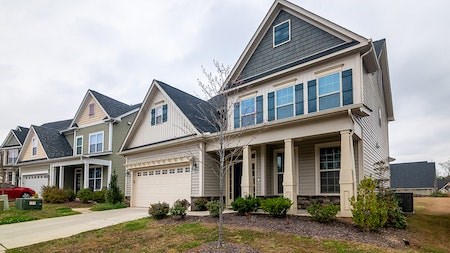Statistics issued by Absa in its latest Homeowner Sentiment Index (HSI), for Quarter 1 (Q1) 2021, show that improvements in sentiment towards the residential property market have consistently escalated over the past four quarters. This is somewhat remarkable given a year plagued by Covid-19 and pre-pandemic downturns across all sectors of the economy.
The Absa HSI is produced quarterly and quantifies beliefs in the property market. Each of the quarters measured is compared to previous quarters and years, and which allows Absa to measure resilience and confidence of consumers who are: aged from 18 upwards; a split of 54/47% male to female; Black 65%, Coloured 11%, Indian 5% and White 19%; with 70% owners vs 30% renters.
For the period January to March 2021, sentiment has increased to end at 81%, the highest recorded since the introduction of the HSI in 2015. Muzi Zim, Manager of Analytics: Absa Home Loans, also revealed that the sentiment towards buying, rather than renting, has similarly reached the highest level yet.
Affordability
“The focus on affordability in the past few HSI’s has been on interest rates, and this remained a focus in the past few surveys, however, what was also topical in the Q1 2021 survey, was affordability due to incidental property acquisition and ownership costs (transfer and maintenance costs). Non-property owners who prefer to rent, together with non-first time property owners have made reference to these incidental costs.”
The Western Cape has shown the biggest increase in sentiment during the first quarter of 2021, having rebounded well on sentiment towards selling and investing in property. “The underlying drivers for this point to property values, with respondents citing good prices as a driver for selling, and accumulation in value as a driver for investing sentiment,” confirmed Zim.
Interest rate
It remains valid and noticeable that the favourable interest rates have certainly been a sentiment enhancer, especially since the Q3 2020 survey was released. Traditionally sentiment is something that changes over time and is not necessarily impacted by a quick response to fiscal/monetary policies because those need time to trickle down into household budgets.
“However, policies that have an immediate impact, like interest rate cuts, can cause major shifts in the short-term,” explains Zim. “The market, and thus sentiment, quickly respond to interest rate cuts because the effect is tangible at the household level. A year ago respondents felt they were being driven towards property ownership overall, so buying sentiment went up, and selling sentiment was down.
“When you experience sustained demand, as indicated in the HSI, supply and demand dynamics will ultimately benefit sellers, especially through higher property prices, and this is a trend we are keeping a close eye on,” says Zim. This has emerged as house prices inch ahead in the face of stock shortages. “House prices have lagged CPI for most of the past decade, but with CPI having remained modest, we will likely see a reversal of this trend with property prices potentially set to grow in real terms.”
Renovations
The latest survey also shows an emerging trend where property renovations could be leveraged to enhance security - 45% of respondents with positive sentiment towards making renovations indicated that alterations are an opportunity for improving security. Those that are in this category are expressing concerns about the economy, and thus hedging their renovations on the better returns that are anticipated when the time comes to sell.
Investment
Q1 2021 sentiment shows that 83% of respondents considered it an appropriate time to invest in property, regardless of the current environment. 48% of them still believe they will make a good return on their investment, thus increasing the sentiment of this sub-index by 5% (quarter-on-quarter). Covid-19 has certainly played a role in this, say more than 50% of those surveyed. Another concern is the unemployment rate impacting those who are now unable to pay rent or have concerns about future job security.
Positive reactions
Overall, 58%% of respondents have indicated their belief that property is a secure asset and creates long-term value. There remains optimism around selling property in the current market, where a 2% increase in sentiment has been realised and with selling sentiment lagging behind buying sentiment for a sustained period, property prices are likely to drive the recovery of selling sentiment.
Negative factors
“People are under financial strain following the past years’ pandemic effects,” Zim reminds us. “A large number of those surveyed also remain discouraged by the economic outlook. This is likely to remain a consistent theme, although we do expect specific concerns around the pandemic to subside over the course of the year.
Prediction
“I suggest that homeowner’s sentiment for 2021 will be very similar to what has been revealed in this year’s Q1, which shows a 7% improvement year-on-year, although I would expect selling sentiment to continue with a strong recovery in the coming months as prices rally relative to inflation,” concludes Zim.





